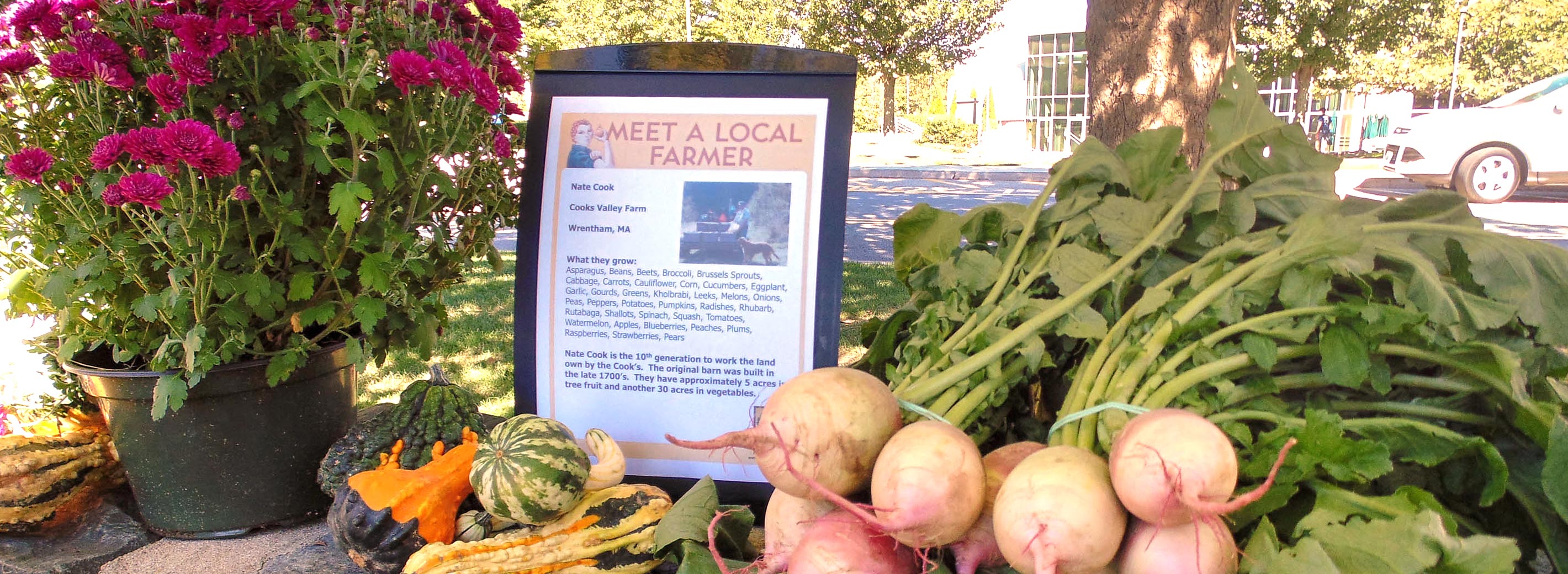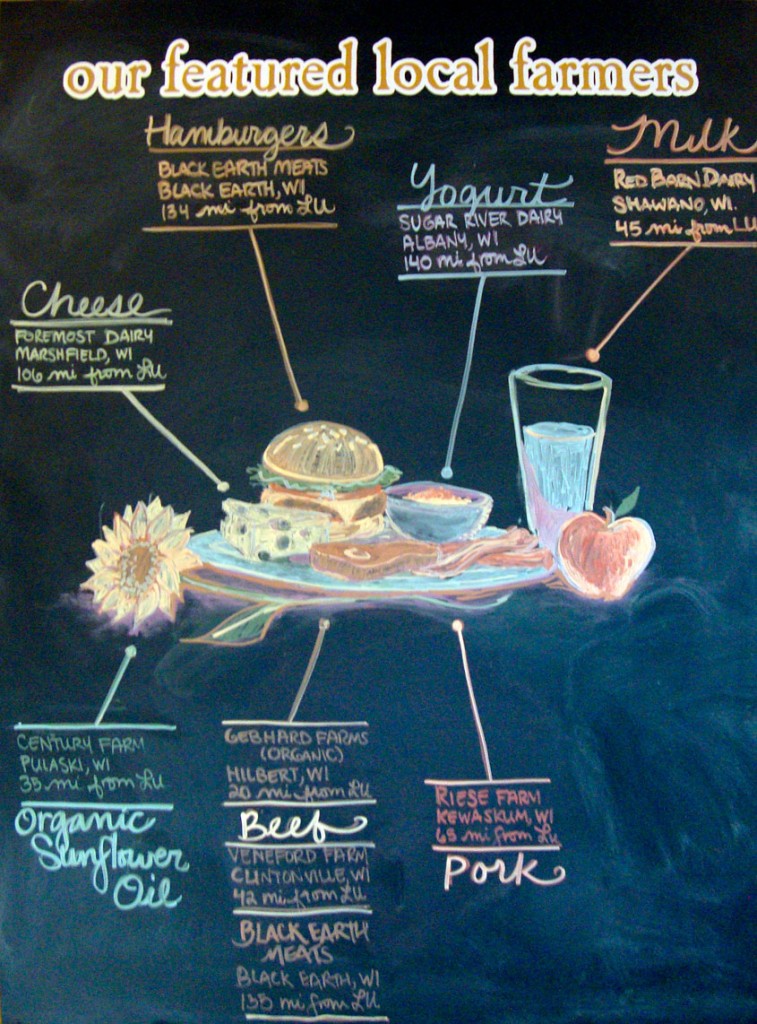
Farm to Fork Criteria
In 1999, we launched our companywide commitment to buying locally, Farm to Fork.
We require our chefs to purchase at least 20 percent of their ingredients from small farms and ranches located within 150 miles of their kitchens that are registered through this program.
By buying directly from farmers, we have much more control over what types of agribusiness we are supporting. We support true family farms where the owners live on or nearby the land, work it themselves, and therefore are conscientious stewards. In 2011, we defined a new mid-size category for regional meat producers, and also launched a companion seafood program, called Fish to Fork.
In 2014, we defined our Locally Crafted category, for local artisans who support socially and environmentally responsible practices through community entrepreneurship.
We rely on our regional foragers and piscators to locate and enroll new suppliers. If your farm or ranch meets the eligibility below (or for artisan foodcrafters, the criteria for Locally Crafted), you may email us with your name, contact information, and a description of your business (and where you’re located) and we will connect you to the forager/piscator in your area.
Our rules for Farm to Fork eligibility for all farms are as follows:
| Size/Type of farm | Ownership | Distance from Bon Appétit kitchen | Annual sales volume | Certification |
| Small farms, orchards, mills growing plant-based products | Owner-operated1 | 150 miles or less | $5 million or less2 | None3 |
| Small producers of meat, poultry and eggs4, dairy and cheese | Owner-operated1 | 150 miles or less | $5 million or less2 | None4 |
| Mid-size producers of meat, poultry and eggs, dairy and cheese | Owner-operated1 | 500 miles or less | Less than 1% of industry leaders’ sales volume for each species cultivated7 | Stringent third-party humane certifications: required8 |
In addition to the Farm to Fork criteria above, we buy only rBGH-free milk and yogurt; chicken, turkey, and hamburger from animals raised without the routine use of antibiotics; and cage-free eggs.
Chart notes
1 Co-ops of owner-operators are acceptable.
2 If a co-op, all members must gross $5 million or less and be a true co-op rather than contractors to a large corporation.
3 We do not require any sustainability certifications. We encourage producers to share evidence of certifications, integrated pest management or organic practices, and other third-party validated evidence of best agricultural practices.
4 Shell egg producers must have third-party humane certification.
5 To be considered Farm to Fork, milled grains must come from within 150 miles as well as be milled locally. NOTE: These criteria are currently being re-examined and will be changing by year-end 2014.
6 We do not require any sustainability certifications of artisans, but we do require a variety of legal documents including a certificate of insurance and a W9.
7 Currently, this ranges from $15 million for turkey to $132 million for beef.
8 Third-party certification from Humane Farm Animal Care, Animal Welfare Approved, Global Animal Partnership, or Food Alliance. A producer can be enrolled if they have had an initial consultation with one of these agencies and commit to completing the process within 18 months. If they fail to get certified, they will no longer be considered Farm to Fork suppliers.
